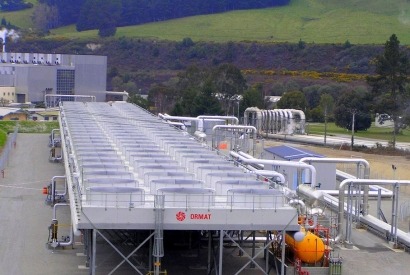
The report, entitled "The Values of Geothermal Energy: A Discussion of the Benefits Geothermal Power Provides to the Future US Power System," is a joint release from the Geothermal Energy Association and the Geothermal Resources Council.
It was prepared by Ben Matek, GEA's Industry Analyst, and Brian Schmidt, the librarian at the GRC.
"Geothermal power offers both firm and flexible solutions to the changing US power system by providing a range of services including but not limited to baseload, regulation, load following or energy imbalance, spinning reserve, non-spinning reserve, and replacement or supplemental reserve," the report begins.
Looking beyond the benefits to the power system, the report also summarizes other key benefits of geothermal power including economic and environmental benefits.
“We are often asked about the full range of services and benefits available from geothermal," Matek said. "So, we decided to join with GRC and put out a white paper that addresses these questions."
"This is a timely report," said Karl Gawell, GEA's Executive Director. "The California PUC recently noted active questions before policy makers in California and elsewhere, specifically: 'how increasing amounts of intermittent generation are impacting grid reliability, quantifying the impact and benefits of various resources to integrate intermittent generation, and what new policies should be adopted to manage the changing electric grid.'”
As the report suggests, these questions are gaining in importance as the United States expands its renewable power production, which today means "generating approximately 14% of the electricity” nationwide. M
uch of this is coming from wind and solar photovoltaic technologies that rely heavily on the prevailing weather conditions in order to generate power.
"Geothermal energy is a renewable power source that can provide baseload and flexible power, quickly adjusting to fit the needs set by variable renewable energy technologies," the report states.
For additional information:

